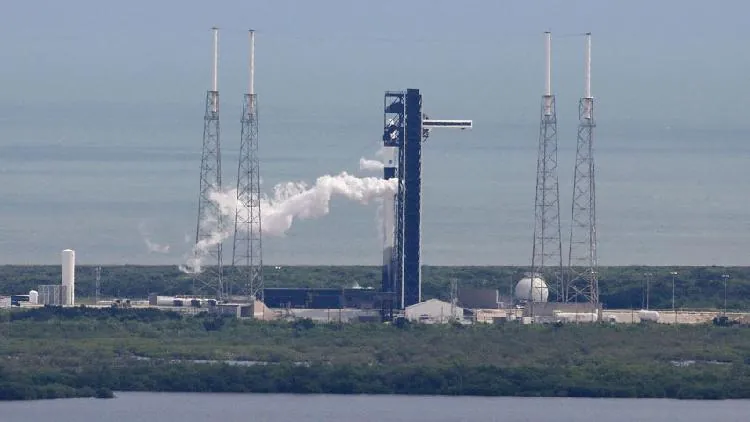
SpaceX Falcon 9 Rocket Grounded Again - What’s Behind the Recent Failures?
2024-10-01
Author: Wei
In a significant turn of events, the U.S. Federal Aviation Administration (FAA) announced on Monday that SpaceX has been ordered to conduct an investigation following a critical malfunction involving the second stage of its Falcon 9 rocket. This decision marks the third time in just three months that SpaceX has faced grounding, prompting concerns about the rocket's reliability.
On Saturday, the Falcon 9 successfully launched a crew of two astronauts to the International Space Station (ISS) as part of a NASA mission. However, after the successful crew deployment, the rocket's booster stage failed to perform its necessary “deorbit burn.” This mishap is part of the protocol that ensures the booster safely plunges into the ocean after completing its mission. Instead, the booster ended up descending into a region of the Pacific Ocean beyond the FAA-designated safety zone, raising red flags regarding operational safety.
Fortunately, the astronauts reached the ISS without incident, and the FAA reported that no injuries or property damage resulted from the booster failure. SpaceX addressed the issue, stating that the booster “experienced an off-nominal deorbit burn,” ultimately landing safely but outside of the target area.
In a statement on social media platform X (formerly Twitter), SpaceX confirmed, "We will resume launching after we better understand the root cause." This commitment to safety and investigation is critical, especially given the recent history of interruptions. Just in July, a second-stage failure during a mission resulted in the destruction of a batch of Starlink satellites, marking SpaceX’s first mission failure in over seven years. However, SpaceX was back in action just 15 days later. In August, another grounding occurred when the Falcon 9’s first stage failed to land back on Earth, but luckily, this did not impact the mission's success, allowing SpaceX to resume launches after only three days.
As an industry leader, SpaceX averages two to three launches per week, showcasing the reliance of many sectors on its efficient services, including commercial satellite deployment and human spaceflight. Nevertheless, these repeated groundings might prompt the company to rethink its launch strategies and safety protocols.
Moreover, the relationship between SpaceX and the FAA has become increasingly strained, with public disagreements over the speed of launch licensing regulations. There have also been fines imposed on SpaceX for alleged violations of Falcon launch licenses earlier in 2023. This ongoing tension adds another layer of complexity to the current situation.
As the aerospace community watches closely, the fate of upcoming launches now hangs in the balance, particularly as SpaceX awaits FAA approval to proceed with further missions. Complicating matters are the ambitious goals related to Starship's fifth flight test, which the FAA has been slow to approve, reflecting the mounting pressure on SpaceX's innovative endeavors.
What will happen next for SpaceX? Can this space giant overcome its challenges and continue to lead the industry in space transportation? Only time will tell, but for now, all eyes will be on the investigation results and the FAA’s next move.



 Brasil (PT)
Brasil (PT)
 Canada (EN)
Canada (EN)
 Chile (ES)
Chile (ES)
 Česko (CS)
Česko (CS)
 대한민국 (KO)
대한민국 (KO)
 España (ES)
España (ES)
 France (FR)
France (FR)
 Hong Kong (EN)
Hong Kong (EN)
 Italia (IT)
Italia (IT)
 日本 (JA)
日本 (JA)
 Magyarország (HU)
Magyarország (HU)
 Norge (NO)
Norge (NO)
 Polska (PL)
Polska (PL)
 Schweiz (DE)
Schweiz (DE)
 Singapore (EN)
Singapore (EN)
 Sverige (SV)
Sverige (SV)
 Suomi (FI)
Suomi (FI)
 Türkiye (TR)
Türkiye (TR)
 الإمارات العربية المتحدة (AR)
الإمارات العربية المتحدة (AR)